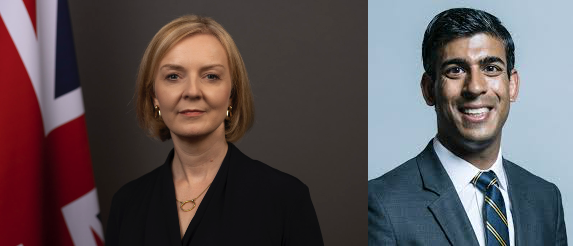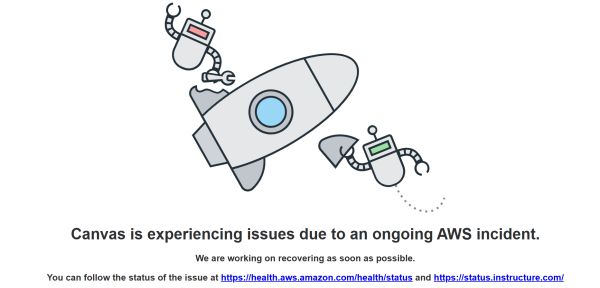Liz Truss Resigns as Britain’s Prime Minister, and Sunak Comes into Power
Learn about Truss’ tumultuous tenure and the new leader of the UK

Truss: Number 10, Prime Minister Liz Truss Official Portrait, CC BY-NC-ND 2.0 and Sunak: Official portrait of Rishi Sunak crop 2, CC Attribution 3.0 Unported
Appointed on September 6, 2022, Liz Truss replaced the United Kingdom’s previous prime minister Boris Johnson who stepped down earlier this summer after allegations of hosting large parties while the rest of the country was under strict lockdowns induced by COVID-19. Truss had been Mr. Johnson’s foreign secretary, and she won a leadership contest among members of her Conservative Party rather than being voted for by the general public. During her first speech as Prime Minister, Truss made many promises to help the economy. She told reporters, “I will deal with the energy crisis caused by Putin’s war [in Ukraine].” She also promised, “I will take action this week to deal with energy bills and secure our future energy supply.” Truss also said she had a “bold plan to grow the economy through tax cuts and reform” that would “boost business-led growth and investment.”
But how Truss handled Britain’s economy ended up being disastrous in the long run.
She unveiled her plans to reform it through “tax cuts, deregulation and free-market economics,” which led to energy bills being estimated to rise by 80% by October, effectively putting the country into an economic crisis. This plan alarmed global investors and sent the value of the British pound to a record low against the U.S. dollar. The Bank of England intervened to calm the markets and forced her to reverse most of the tax cuts.
Truss’s economic woes helped grow her unpopularity. A survey conducted by Redfield & Wilton Strategies on October 16 revealed that only 12% of all voters approved of her performance as prime minister, and 67% of those on the survey who disapproved were people who had voted for the Conservative Party in 2019. On October 19, she tried to keep her job by announcing during a televised debate with members of Parliament that “I’m a fighter; I’m not a quitter.” A day later, Truss said she would step aside for the election of a new Conservative Party leader within the next week.
The party decided on Truss’s successor with another leadership contest with a short list of candidates. To become the next leader of the party – and consequently, the prime minister since the Conservatives have a majority in Parliament – candidates had to get around 100 nominations from Conservative members of Parliament by 2 p.m. Monday, October 24th.
Rishi Sunak won the leadership contest. After he met with King Charles III on Tuesday, he officially became the third prime minister of Britain in the past seven weeks. At 42, Sunak is the second youngest Prime Minister to serve the country after the Earl of Liverpool in 1827. Sunak is also the first person of color and Hindu to ever be appointed prime minister. Previously, he was the finance minister, or chancellor of the exchequer, for Boris Johnson in 2020. As the chancellor, Sunak oversaw Britain’s economic recovery from the COVID-19 pandemic. When Sunak resigned from his position as chancellor in July 2022, it helped mark the end of Boris Johnson’s tenure.
On Tuesday, on the steps to 10 Downing Street, Sunak made his first announcements to reporters. He acknowledged the profound crisis the country was currently in due to COVID-19 and the war in Ukraine. He talked about his experience and how he handled the economy during the pandemic, affirming his expertise. Afterward, he even praised Truss for trying to assist the nation, knowing she did not make her choices with any evil intent. Sunak said, “There are always limits, now more than ever, but I promise you this; I will bring that same compassion to the challenges we face today. The government that I lead will not leave the next generation — your children and grandchildren — with a debt to settle that we were too weak to pay ourselves. I will unite our country, not with words, but with action. I will work day in and day out to deliver for you.”






